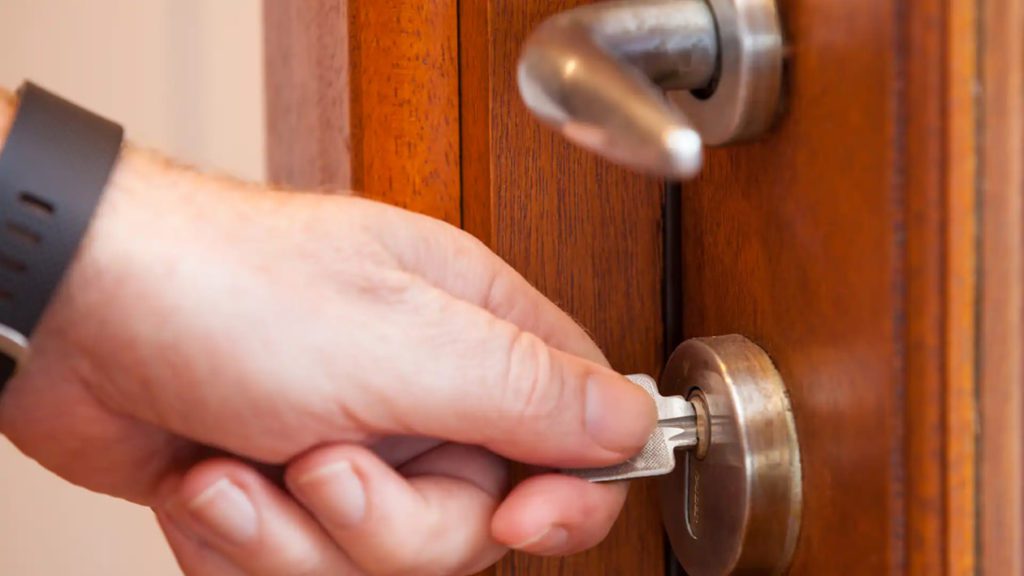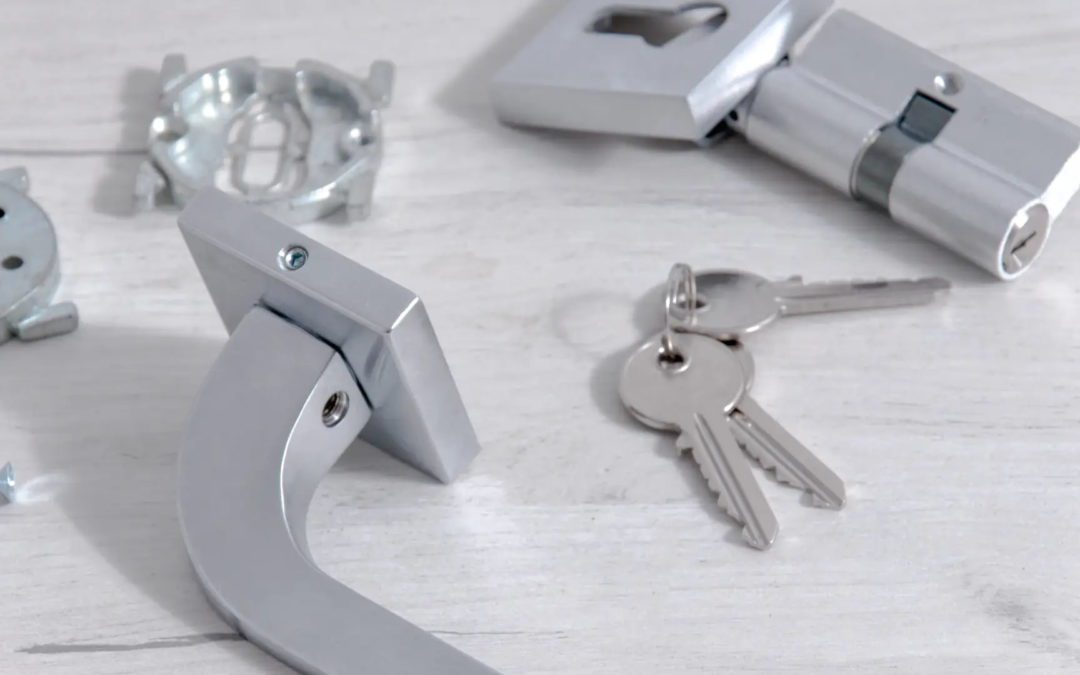With so many types of locking mechanisms available, choosing the right one for your property can feel overwhelming. Every lock serves a unique purpose, offering specific levels of security, durability, and convenience. Understanding their features and how they work can help you make an informed decision that best suits your security needs. If you’re still stuck, our professional locksmiths in West Auckland can provide support, too.
Here’s a breakdown of some common types of locks in NZ—pin and tumbler, tubular, rim, mortise, and electronic—to help you understand their mechanisms and applications.
Types of locking mechanisms explained
Pin and Tumbler Locks: Pin and tumbler locks are among the most commonly used types of locks. So, how do these door locks work? They operate with a set of spring-loaded pins inside small cylinders. When the correct key is inserted, it compresses the springs, aligning the pins at a specific level known as the shear line. This alignment allows the lock to turn. If the key is incorrect, the pins remain misaligned, blocking the shear line and preventing the lock from opening.
This mechanism provides a reliable level of security and is used in many residential and commercial applications.

Tubular Locks: Tubular locks are a variation of the pin and tumbler design and are easily recognisable by their unique circular key. The key has a rectangular notch that matches a corresponding slot on the lock, ensuring proper insertion. Tubular locks are commonly found on devices left unattended for extended periods, such as ATMs, vending machines, and retail display cabinets. This type of locking mechanism offers a high level of resistance to picking and tampering.
Rim Locks: Rim locks are often seen in older homes and are mounted on the door’s surface. They use a basic latch mechanism and include wards inside the keyhole that prevent the use of incorrect keys. While rim locks are among the oldest lock types, they have largely been replaced by more modern locking systems due to advances in security technology.
Mortise Locks: Mortise locks are installed within a pocket, or mortise, cut into the door. They can incorporate either simple latches or high-security deadbolts. Mortise locks are known for their strength and durability, and depending on the features, they can offer a high level of security. They are commonly used in residential and commercial settings for their robustness and reliability.
Electronic Locks: Electronic locks represent a significant advancement in locking technology. Luckily, understanding how keyless door locks work doesn’t require specialised knowledge. This type of locking mechanism uses an actuator to connect mechanical parts to a motor inside the door or frame. The motor operates via an electrical impulse, which can be triggered by a keypad, electronic card reader, or wireless remote sensor. The lock will only open with the correct electrical signal, though most electronic locks include manual bypass options in case of power failure.
This type of lock offers convenience and enhanced security through modern technology, and our professional locksmiths at Western Lock Services provide smart lock installation for an added layer of sophistication.
Considerations when choosing a type of locking mechanism
Now that you understand how different locks work, you may wonder what makes one option better suited for your needs. Key factors to consider for your home include:
Budget: Lock prices vary, with mechanical options typically more affordable than electronic ones. Decide whether you need a basic, secure option or prefer a high-tech, premium lock.
- Location: Consider where the lock will be installed. Is it for a main entrance or a side door? The purpose and placement of the lock can influence your choice.
Secure your property with help from Western Lock Services
With various lock types available, selecting the right one for your home or business can be complex. Understanding the differences between pin and tumbler, tubular, rim, mortise, and electronic locks can help you make an informed decision based on your security needs and preferences. For tailored advice and to ensure optimal protection, consider consulting a professional locksmith who can guide you in choosing the best lock system for your specific requirements.
For more information or to get expert advice on lock selection, reach out to us today. Let Western Lock Services assist you in securing your property with the right lock system.

